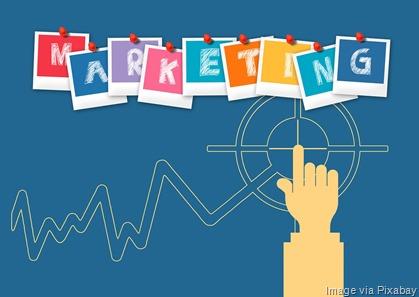 As a long-time advisor to aspiring entrepreneurs, and a technology fan myself, I still meet dozens of techies with great solutions who assume they don’t need marketing to change the world. They subscribe to the myth that “if we build it, they will come.” In fact, with today’s information overload, modern marketing is the key to raising even the most innovative solution above the crowd.
As a long-time advisor to aspiring entrepreneurs, and a technology fan myself, I still meet dozens of techies with great solutions who assume they don’t need marketing to change the world. They subscribe to the myth that “if we build it, they will come.” In fact, with today’s information overload, modern marketing is the key to raising even the most innovative solution above the crowd.
Let me be clear – I’m not talking about the old-fashioned “push” marketing, where you broadcast your message louder and more incessantly than others to get above the din. I’m talking about using the new digital channels of blogging, social media, and influencers more creatively to “pull” people to your solution, and make them advocates. This is the new art and science of marketing.
In fact, you need to understand that marketing itself has changed, as much as all the other elements of business. I see these changes summarized well in a new book, “Marketing Flexology: How to Outsmart Change and Future-proof Your Career,” by Engelina Jaspers. She points out changes and new approaches, based on her thirty-year career in technology advertising.
She clarifies, for example, that one of the things that hasn’t changed in marketing is the need for a compelling call-to-action (CTA), but implementation alternatives can now be more creative. As an entrepreneur, your technology and your solution may be very impressive, but customers and partners won’t get your message unless they are presented with the following key elements:
-
Documented tangible personal benefits from your solution. In my experience, the goals communicated by most change initiatives are either overly lofty, uninspiring, or nebulous. Don’t forget to add a call to action, such as buying the product or accepting a proposal, and emphasize the personal benefits acquired for taking the requested action.
For example, the Square credit-card-reader technology business for smart phones touts the ability for almost anyone to accept credit cards transactions anywhere – something that was previously out of reach before Square came along. This can be easily quantified to show how any taxis and other vendors can increase their customer base and revenue.
-
Clear direction and priority on how to achieve results. Talking about abstract issues, or listing dozens of new features is not effective today. On the contrary, limiting the number of options marketed and using direct, simple, and actionable language will make your message stand out, and increase the probability of real visibility and success.
Take a look at the Vanguard investment management site, and you immediately see language like “See why Vanguard is right for you” and “See how a Vanguard advisor can help” to quickly prioritize customer needs. Another approach is a specific actionable statement, such as stop doing X, and start doing Y and Z. Be specific.
-
A sense of urgency instilled to take action now. Deadlines and time limits make people act quickly rather than think too much, wait too long, or simply not respond. Scarcity also works to convey a sense of urgency. Another powerful motivation is the fear of missing out (or FOMO). Create a sense that you may be missing something exciting.
A good example of this would be something like “call before December 1st to get a free 30-day trial!” Not only have you stated the action you want the user to take (call deadline), but you have also provided them with a reason why they should take that action (a free trial). Obviously this applies to technology and non-technology solutions.
-
Creativity in making the communication memorable. Something could look great on paper, or may sound great, but the only way you’ll absolutely know for sure if something will work for your solution is if you test it out. I recommend trying different experiments, but being creative with them. Try to think outside the box on every marketing message.
For example, Warby Parker eyeglasses cleverly uses an interactive quiz and gamification to guide people down the purchase funnel. The Missguided e-commerce site in the UK often uses hip language to appeal to a young, digitally-savvy and pop-culture-loving audience, to make their visit memorable and suggest a need to return again.
Every entrepreneur needs to realize that marketing is now key to success on every new venture, no matter how compelling the technology. In addition, you need to understand that modern marketing practices have changed, now requiring more creativity and agility, no matter what background and training you come from. Keeping up with this change is critical to your survival.

